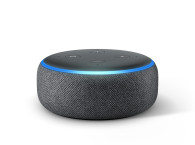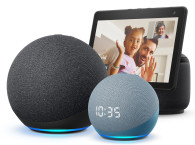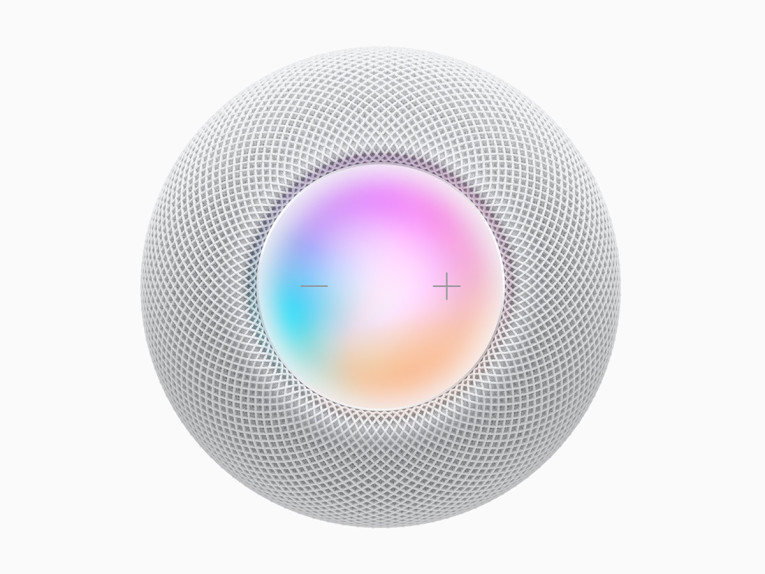
With demand for stay-home entertainment expected to increase, global platform vendors have released new smart speakers and displays, ensuring value and availability. According to the Global Smart Speaker Analysis study published by Canalys, this will be a critical factor ahead of the 2020 year-end shopping season, which will be unlike previous years, due to the pandemic. The global smart speaker market is expected to emerge stronger in 2021, with markets outside China expected to recover and contribute a larger portion of the annual growth.
"Smart speakers continue to improve despite the simplicity of the form factor. The challenge is to bring noticeable improvements and innovation with minimal increase in costs," says Canalys Research Manager Jason Low. "Amazon and Google are striving to spark interest by breaking the speaker mould, each taking different design routes aimed to obtain sound quality improvements, not only with physical design changes, but also introducing additional elements of computational audio. In the future, a customer's listening experience will be increasingly adaptable and driven by AI."
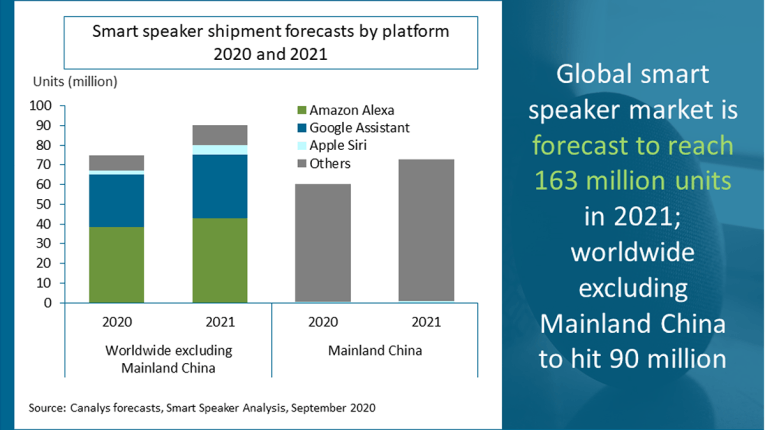
Apple revealed the HomePod mini at its October 2020 launch event, mounting a challenge against the incumbents. "Apple still has much to prove to attract users, especially as the HomePod mini is up against other new US$99 devices, which are larger in size and with assistants perceived to be smarter," adds Low. "Apple must deliver its acclaimed premium user experience by leveraging its proprietary ecosystem of hardware, software and services. The HomePod mini would give its competitors a run for their money if the sound quality proves to be better despite its smaller size, and if the UWB and Intercom features work seamlessly for users."
Canalys also notes that Apple is the only global platform vendor selling hardware and services in China. Effectively, according to Apple, the new HomePod mini, which will be available November 16 in Australia, Canada, France, Germany, Hong Kong, India, Japan, Spain, the UK, and the US, is also expected to be available in China, Mexico, and Taiwan before the end of 2020.
"The US$99 (approximately CYN700) price segment is pretty much a no-mans-land in China, yet adequate to appeal to Apple’s user-base. Apple should take this opportunity to drive the uptake of its music and other services consumed at home," explains Canalys Research Analyst Cynthia Chen.
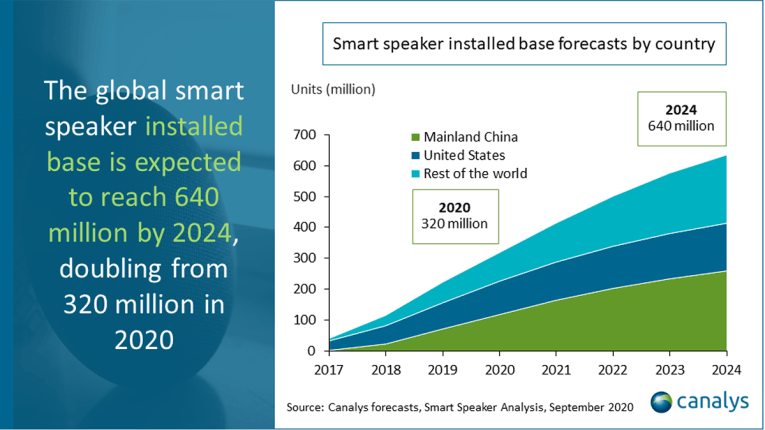
The global smart speaker installed base is forecast to reach 640 million by 2024, paving the way for the ambient computing paradigm shift. "From the speed of response, to the skills and real-world tasks smart assistants can help complete, the job of building great hardware and smart assistant features falls to platform vendors with the resources and business models to support such endeavors. However, the smart assistant ecosystem needs to be supported by third-party developers, hardware vendors, and service providers. It is crucial for ecosystem partners to pay close attention to what platform vendors achieve, while having a keen sense to uncover new use cases as users shift habits amid the ongoing pandemic," adds Low.
www.canalys.com



